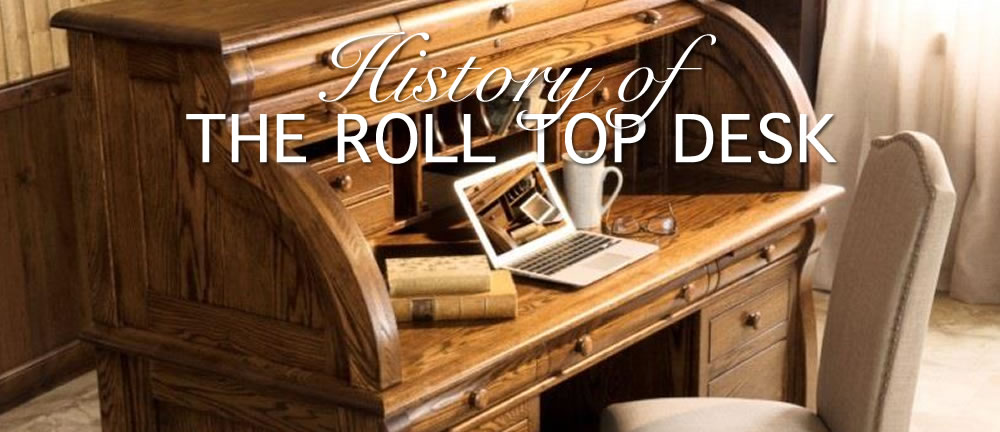
History of the Roll-Top Desk
“A place for everything and everything in its place” was the slogan that propelled the roll-top desk to popularity during the 19th century. A desk full of small drawers, hideaways, and perfectly sized compartments with a top that could be closed to conceal any clutter was a delight for many and became a popular choice for small to medium-sized offices.
But first, it began with a king.
Table of Contents
The History of the Roll-Top Desk
At the King’s Request
King Louis XV of France, also known as Louis the Beloved, was interested in a stylish and secure writing station that could be shuttered and locked. He asked his cabinetmaker, Jean Francois Oeben, to create such a desk for him. Oeben worked on the design for the last three years of his life. His successor, Jean Henri Reisner, spent six more years (1763-1769) perfecting it. More than a century would pass before the roll-top desk would make its mark in the furniture design community.
Coming to America
European furniture makers brought the idea of the roll top desk to the United States during the 19th century. At the time, letter writing was the primary form of long distance communication, which made the design of the roll-top desk perfect for every office.
The Design of the Roll-Top Desk
The design elements common to roll-top desks easily supported the daily correspondence of the time. The small drawers, pigeonholes, and shelves provide storage for writing utensils, fresh paper, ink, envelopes, and stamps. The most attractive element of the roll-top desk was the slatted wood cover called a tambour, which rolled down and locked. This attractive feature concealed any clutter or work in progress.
Finally, a Patent
In 1850 Abner Cutler, owner of Cutler Desk Company, patented the roll-top desk. Cutler’s design perfected the flexibility of the tambour that slid down to cover the desktop when it was not in use.
A Blending of Desk Styles
The roll-top desk combined characteristics of the pedestal, Carleton House, and tambour desks, making it easy to produce quickly.
The Pedestal Desk
Pedestal desks feature a rectangular top which rests on two cabinets that contain stacked drawers. Each stack of drawers is called a pedestal. This pedestal base is featured in the Amish Mission Roll Top Desk.
The Carleton House Desk
Named after the London residence of the Prince of Wales, Carleton House desks have various nooks, crannies, and drawers, much like roll top desks. The writing area rests on legs instead of a pedestal for a more elegant, refined look.
The Tambour Desk
Like roll-top desks, tambour desks feature slatted doors. However, the slats on a tambour desk are perfectly straight and close from left to right rather than top to bottom. When closed, the slatted doors on a tambour desk do not conceal the desktop.
The Deluxe Amish Roll Top Desk with Optional Top Drawers features a tambour top made of wooden slats placed on a flexible material that allows it to close easily and completely.
Favorite Features of the Roll Top
- Covers workspace when not in use
- The roll-down cover makes the room look tidier
- Roll down cover could be locked
- Small cubbyholes, drawers, and shelves keep items organized
The Amish 65” Castlebury Roll Top Desk offers all the desirable features of a roll top desk.
Roll-Top Desks: From Mainstay to Sought-After Antique
The roll-top desk fell out of favor in the early 1900s with the introduction of sleek glass and steel desks. Larger quantities of documents also made the small stacked drawers and mini-shelves impractical. The need for more storage saw roll-top desks replaced with filing cabinets.
Roll top desks were also known as curtain desks during their rise to fame. Today, the design of these desks reconnects us with the past, which has caused the roll-top desk to become a sought-after antique.
The Amish Mission Deluxe Roll Top Desk exhibits all the beauty and elements of the original roll top design.
Often used in home offices, bedrooms, and hallways, we are sure the curtain will never close on the demand for roll-top desks.


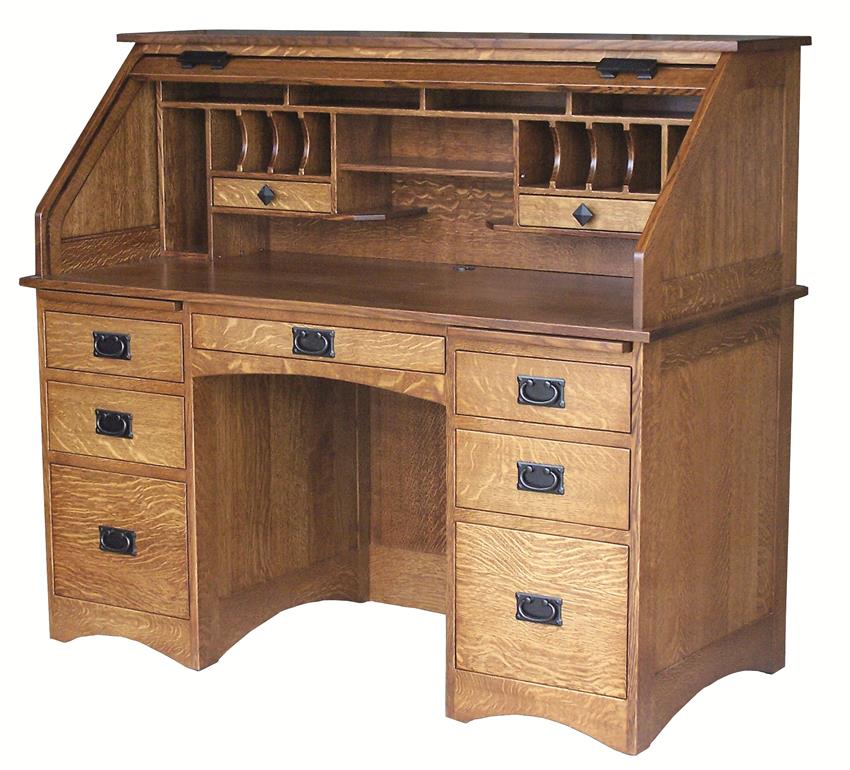
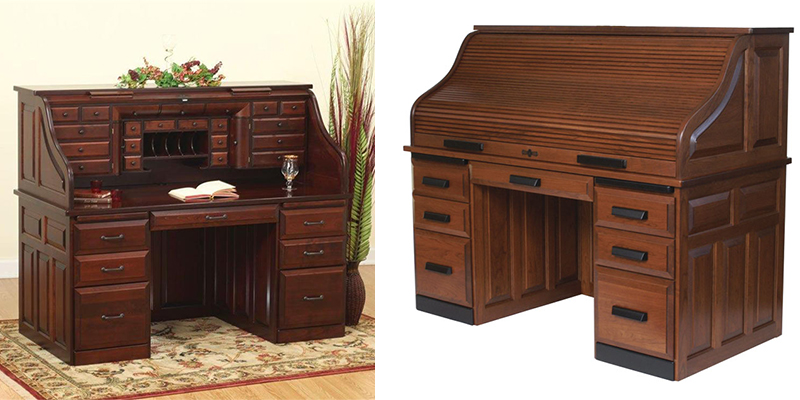
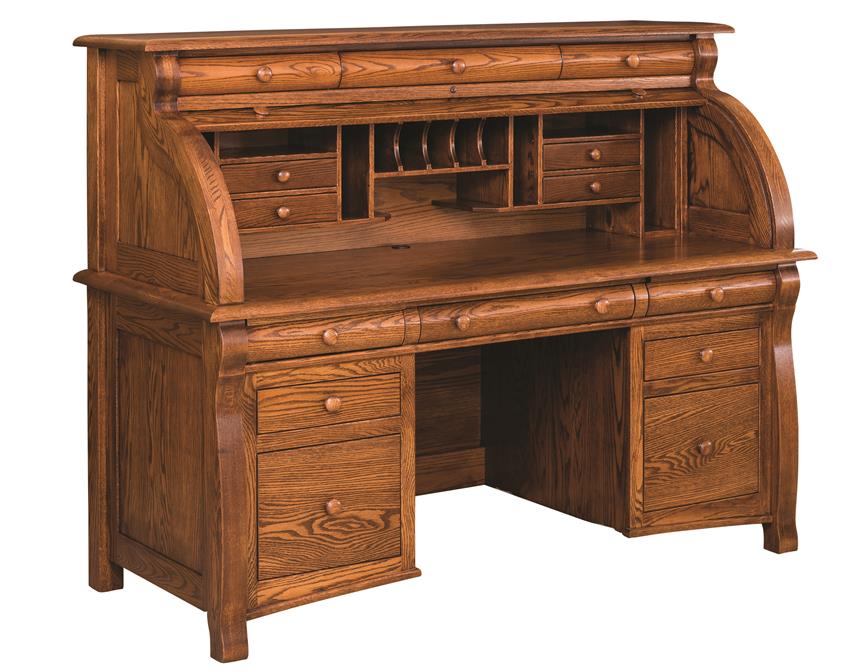
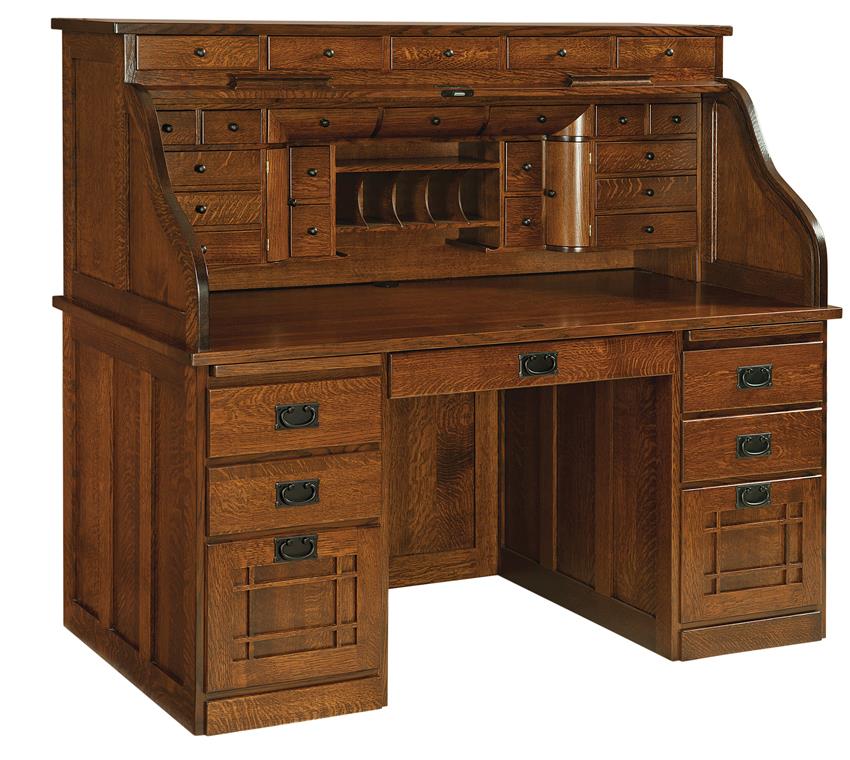
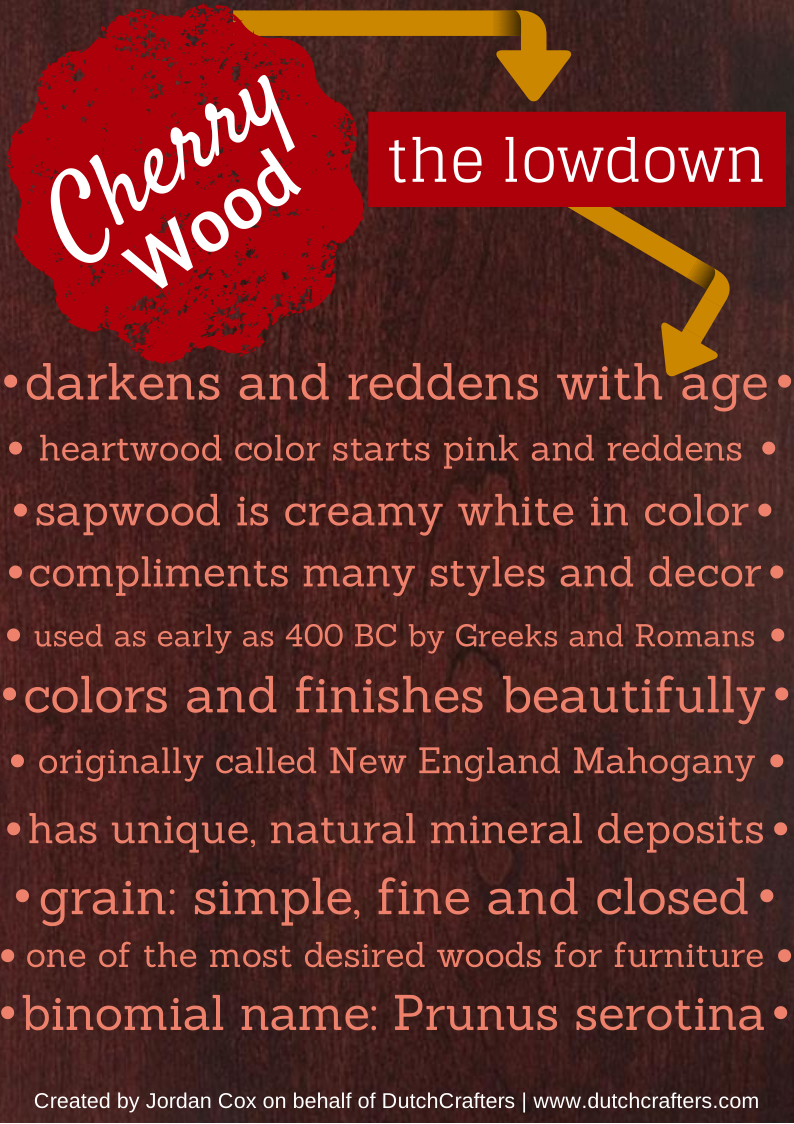


Hello Beth, I have inherited a roll top desk from my father. I would like to know the history or the desk. I reside in Allentown, PA. My father resided in Reading, PA. These locations are close to Amish country. There is a stamped 1821 on the desk. I do not know if this is the date the desk was made or the number for each desk that was made. The roll top desk has open pigeonholes drawers, and other unique features. I even have the key to lock the roll top desk. If I could attach a picture, it might help you. Thank you, Mark
Hi Mark,
Thank you for your inquiry. Unfortunately, we are not able to provide you with information about the desk you inherited. However, an antiques appraiser in your area may be able to provide you with details. Just make sure to do some research on having furniture appraised, and make sure you work with someone reputable if you decide to go that route.
I just got a roll top desk and I’m trying to figure out if there is a purpose to the middle. Just like the Amish mission desk you picture the very middle of the shelves had two little curved pieces – just under the slots. Are they to hold something specific? Is it just simply a decoration? It almost looks like it holds coins. I wondered what they used to use that for. Thanks!
Hi Irene,
Thank you for your question. You are correct! Those curved pieces have a significant function. They are curved pencil trays that line the central shelves and cubbies. Here is a helpful video that outlines parts of the roll top desk. Enjoy your new desk!
https://www.youtube.com/watch?v=C_LaJI4HbR4
Back in my childhood my family had a Hemmer roll too desk in Golden Oak . My mother passed it to me and I found out my great uncle made Thomas Edison’s desk that sits in his museum in Menlo Park NJ . My family is from Nutley NJ a short way from Mr Edison’s . I have scoured every picture of that desk and other than the roll being 1 pigeon hole taller the desk is identically carved and it’s in my garage as we speak . Not sure based on its condition it is worth anything but I can say it’s design and agar are uncanny to dispute . There is no data to say who really built that desk .
Hello Thomas,
Thank you for visiting our blog. It sounds like you have a beautiful piece of furniture full of family memories.
Our roll top desk have strange drawers. can you tell us what they are used for. Can I send you a picture
Hello Linda,
I am happy to look at the picture, but roll top desks can come with a variety of compartments, even ones I haven’t seen before. If you’d like to send a photo, please send it to questions@DutchCrafters.com and put Attn:Beth Rice in the subject line.
Another suggestion is to check out
https://www.myfurnitureforum.com/showthread.php?3217-Help-Identifying-Antique-Furniture
There you can post a photo and get advice from members of that forum.
Thanks so much for visiting Timber to Table.
Ms Rice,
I am a Furniture Medic. I do Repairs, Refinishing and Custom Builds.
I am Refurbishing an antique Roll-Top Desk made by the Indianapolis Cabinet Co.
The tambour slats have separated in several places and on inspection, the roll top tambour was made by sandwiching the membrane inside of opposing slats.
Do you know how to repair this, or perhaps someone I can contact for advice?
Hello Curtis,
We would recommend you try posting your question on an antique furniture repair forum. Here’s one you could try. http://antiquerestorers.com/cgi-bin/bbs/furn/config.pl? There are a number of others if you do a search online.
We hope you find the answer you are looking for. Thank you for your question and for visiting us on Timber to Table.
I’d love to know how much a double sided post office desk is worth? It even has the eagle hand carved in the wood in the front. Just curious, thanks!
Hello Bobbi,
We are not sure what a double sided post office desk would be worth. It depends on when and where it was made and what materials it was made with. We would recommend you take it to a local antique dealer to inquire.
Thank you for your question and for visiting us on Timber to Table.